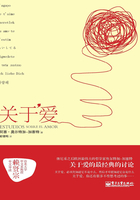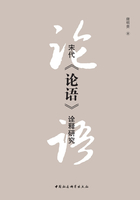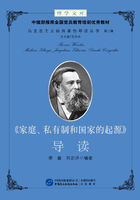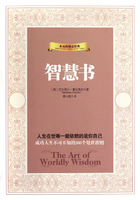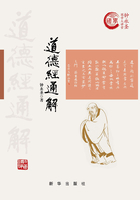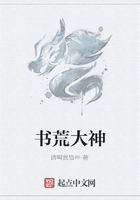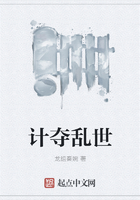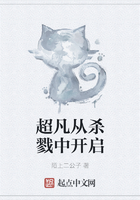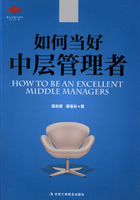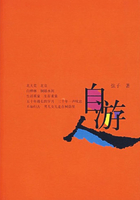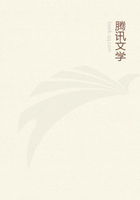A DISCOURSE ON THE METHOD OF RIGHTLY CONDUCTING THE REASON AND SEEKING TRUTH IN THE SCIENCES
Good sense is, of all things among men, the most equally distributed; for every one thinks himself so abundantly provided with it, that those even who are the most difficult to satisfy in everything else, do not usually desire a larger measure of this quality than they already possess. And in this it is not likely that all are mistaken the conviction is rather to be held as testifying that the power of judging aright and of distinguishing truth from error, which is properly what is called good sense or reason, is by nature equal in all men; and that the diversity of our opinions, consequently, does not arise from some being endowed with a larger share of reason than others, but solely from this, that we conduct our thoughts along different ways, and do not fix our attention on the same objects. For to be possessed of a vigorous mind is not enough; the prime requisite is rightly to apply it. The greatest minds, as they are capable of the highest excellences, are open likewise to the greatest aberrations; and those who travel very slowly may yet make far greater progress, provided they keep always to the straight road, than those who, while they run, forsake it.
For myself, I have never fancied my mind to be in any respect more perfect than those of the generality; on the contrary, I have often wished that I were equal to some others in promptitude of thought, or in clearness and distinctness of imagination, or in fullness and readiness of memory. And besides these, I know of no other qualities that contribute to the perfection of the mind; for as to the reason or sense, inasmuch as it is that alone which constitutes us men, and distinguishes us from the brutes, I am disposed to believe that it is to be found complete in each individual; and on this point to adopt the common opinion of philosophers, who say that the difference of greater and less holds only among the accidents, and not among the forms or natures of individuals of the same species.
I will not hesitate, however, to avow my belief that it has been my singular good fortune to have very early in life fallen in with certain tracks which have conducted me to considerations and maxims, of which I have formed a method that gives me the means, as I think, of gradually augmenting my knowledge, and of raising it by little and little to the highest point which the mediocrity of my talents and the brief duration of my life will permit me to reach. For I have already reaped from it such fruits that, although I have been accustomed to think lowly enough of myself, and although when I look with the eye of a philosopher at the varied courses and pursuits of mankind at large, I find scarcely one which does not appear in vain and useless, I nevertheless derive the highest satisfaction from the progress I conceive myself to have already made in the search after truth, and cannot help entertaining such expectations of the future as to believe that if, among the occupations of men as men, there is any one really excellent and important, it is that which I have chosen.
After all, it is possible I may be mistaken; and it is but a little copper and glass, perhaps, that I take for gold and diamonds. I know how very liable we are to delusion in what relates to ourselves, and also how much the judgments of our friends are to be suspected when given in our favor. But I shall endeavor in this discourse to describe the paths I have followed, and to delineate my life as in a picture, in order that each one may also be able to judge of them for himself, and that in the general opinion entertained of them, as gathered from current report, I myself may have a new help towards instruction to be added to those I have been in the habit of employing.
My present design, then, is not to teach the method which each ought to follow for the right conduct of his reason, but solely to describe the way in which I have endeavored to conduct my own. They who set themselves to give precepts must of course regard themselves as possessed of greater skill than those to whom they prescribe; and if they err in the slightest particular, they subject themselves to censure. But as this tract is put forth merely as a history, or, if you will, as a tale, in which, amid some examples worthy of imitation, there will be found, perhaps, as many more which it were advisable not to follow, I hope it will prove useful to some without being hurtful to any, and that my openness will find some favor with all.
From my childhood, I have been familiar with letters; and as I was given to believe that by their help a clear and certain knowledge of all that is useful in life might be acquired, I was ardently desirous of instruction. But as soon as I had finished the entire course of study, at the close of which it is customary to be admitted into the order of the learned, I completely changed my opinion. For I found myself involved in so many doubts and errors, that I was convinced I had advanced no farther in all my attempts at learning, than the discovery at every turn of my own ignorance. And yet I was studying in one of the most celebrated schools in Europe, in which I thought there must be learned men, if such were anywhere to be found. I had been taught all that others learned there; and not contented with the sciences actually taught us, I had, in addition, read all the books that had fallen into my hands, treating of such branches as are esteemed the most curious and rare. I knew the judgment which others had formed of me; and I did not find that I was considered inferior to my fellows, although there were among them some who were already marked out to fill the places of our instructors. And, in fine, our age appeared to me as flourishing, and as fertile in powerful minds as any preceding one. I was thus led to take the liberty of judging of all other men by myself, and of concluding that there was no science in existence that was of such a nature as I had previously been given to believe.
I still continued, however, to hold in esteem the studies of the schools. I was aware that the languages taught in them are necessary to the understanding of the writings of the ancients; that the grace of fable stirs the mind; that the memorable deeds of history elevate it; and, if read with discretion, aid in forming the judgment; that the perusal of all excellent books is, as it were, to interview with the noblest men of past ages, who have written them, and even a studied interview, in which are discovered to us only their choicest thoughts; that eloquence has incomparable force and beauty; that poesy has its ravishing graces and delights; that in the mathematics there are many refined discoveries eminently suited to gratify the inquisitive, as well as further all the arts an lessen the labour of man; that numerous highly useful precepts and exhortations to virtue are contained in treatises on morals; that theology points out the path to heaven; that philosophy affords the means of discoursing with an appearance of truth on all matters, and commands the admiration of the more simple; that jurisprudence, medicine, and the other sciences, secure for their cultivators honors and riches; and, in fine, that it is useful to bestow some attention upon all, even upon those abounding the most in superstition and error, that we may be in a position to determine their real value, and guard against being deceived.
But I believed that I had already given sufficient time to languages, and likewise to the reading of the writings of the ancients, to their histories and fables. For to hold converse with those of other ages and to travel, are almost the same thing. It is useful to know something of the manners of different nations, that we may be enabled to form a more correct judgment regarding our own, and be prevented from thinking that everything contrary to our customs is ridiculous and irrational, a conclusion usually come to by those whose experience has been limited to their own country. On the other hand, when too much time is occupied in traveling, we become strangers to our native country; and the over curious in the customs of the past are generally ignorant of those of the present. Besides, fictitious narratives lead us to imagine the possibility of many events that are impossible; and even the most faithful histories, if they do not wholly misrepresent matters, or exaggerate their importance to render the account of them more worthy of perusal, omit, at least, almost always the meanest and least striking of the attendant circumstances; hence it happens that the remainder does not represent the truth, and that such as regulate their conduct by examples drawn from this source, are apt to fall into the extravagances of the knight-errants of romance, and to entertain projects that exceed their powers.
I esteemed eloquence highly, and was in raptures with poesy; but I thought that both were gifts of nature rather than fruits of study. Those in whom the faculty of reason is predominant, and who most skillfully dispose their thoughts with a view to render them clear and intelligible, are always the best able to persuade others of the truth of what they lay down, though they should speak only in the language of Lower Brittany, and be wholly ignorant of the rules of rhetoric; and those whose minds are stored with the most agreeable fancies, and who can give expression to them with the greatest embellishment and harmony, are still the best poets, though unacquainted with the art of poetry.
I was especially delighted with the mathematics, on account of the certitude and evidence of their reasonings; but I had not as yet a precise knowledge of their true use; and thinking that they but contributed to the advancement of the mechanical arts, I was astonished that foundations, so strong and solid, should have had no loftier superstructure reared on them. On the other hand, I compared the disquisitions of the ancient moralists to very towering and magnificent palaces with no better foundation than sand and mud: they laud the virtues very highly, and exhibit them as estimable far above anything on earth; but they give us no adequate criterion of virtue, and frequently that which they designate with so fine a name is but apathy, or pride, or despair, or parricide.
I revered our theology, and aspired as much as any one to reach heaven: but being given assuredly to understand that the way is not less open to the most ignorant than to the most learned, and that the revealed truths which lead to heaven are above our comprehension, I did not presume to subject them to the impotency of my reason; and I thought that in order competently to undertake their examination, there was need of some special help from heaven, and of being more than man.
Of philosophy I will say nothing, except that when I saw that it had been cultivated for many ages by the most distinguished men, and that yet there is not a single matter within its sphere which is not still in dispute, and nothing, therefore, which is above doubt, I did not presume to anticipate that my success would be greater in it than that of others; and further, when I considered the number of conflicting opinions touching a single matter that may be upheld by learned men, while there can be but one true, I reckoned as well-nigh false all that was only probable.
As to the other sciences, inasmuch as these borrow their principles from philosophy, I judged that no solid superstructures could be reared on foundations so infirm; and neither the honor nor the gain held out by them was sufficient to determine me to their cultivation: for I was not, thank Heaven, in a condition which compelled me to make merchandise of science for the bettering of my fortune; and though I might not profess to scorn glory as a cynic, I yet made very slight account of that honor which I hoped to acquire only through fictitious titles. And, in fine, of false sciences I thought I knew the worth sufficiently to escape being deceived by the professions of an alchemist, the predictions of an astrologer, the impostures of a magician, or by the artifices and boasting of any of those who profess to know things of which they are ignorant.
For these reasons, as soon as my age permitted me to pass from under the control of my instructors, I entirely abandoned the study of letters, and resolved no longer to seek any other science than the knowledge of myself, or of the great book of the world. I spent the remainder of my youth in traveling, in visiting courts and armies, in holding intercourse with men of different dispositions and ranks, in collecting varied experience, in proving myself in the different situations into which fortune threw me, and, above all, in making such reflection on the matter of my experience as to secure my improvement. For it occurred to me that I should find much more truth in the reasonings of each individual with reference to the affairs in which he is personally interested, and the issue of which must presently punish him if he has judged amiss, than in those conducted by a man of letters in his study, regarding speculative matters that are of no practical moment, and followed by no consequences to himself, farther, perhaps, than that they foster his vanity the better the more remote they are from common sense; requiring, as they must in this case, the exercise of greater ingenuity and art to render them probable. In addition, I had always a most earnest desire to know how to distinguish the true from the false, in order that I might be able clearly to discriminate the right path in life, and proceed in it with confidence.
It is true that, while busied only in considering the manners of other men, I found here, too, scarce any ground for settled conviction, and remarked hardly less contradiction among them than in the opinions of the philosophers. So that the greatest advantage I derived from the study consisted in this, that, observing many things which, however extravagant and ridiculous to our apprehension, are yet by common consent received and approved by other great nations, I learned to entertain too decided a belief in regard to nothing of the truth of which I had been persuaded merely by example and custom; and thus I gradually extricated myself from many errors powerful enough to darken our natural intelligence, and incapacitate us in great measure from listening to reason. But after I had been occupied several years in thus studying the book of the world, and in essaying to gather some experience, I at length resolved to make myself an object of study, and to employ all the powers of my mind in choosing the paths I ought to follow, an undertaking which was accompanied with greater success than it would have been had I never quitted my country or my books.

